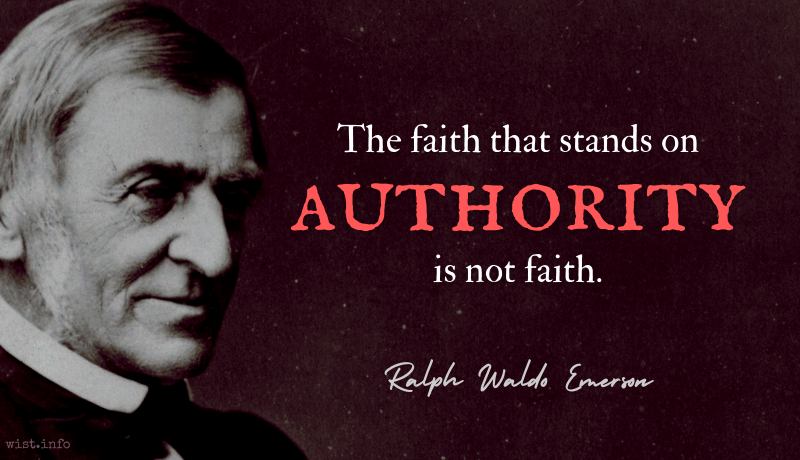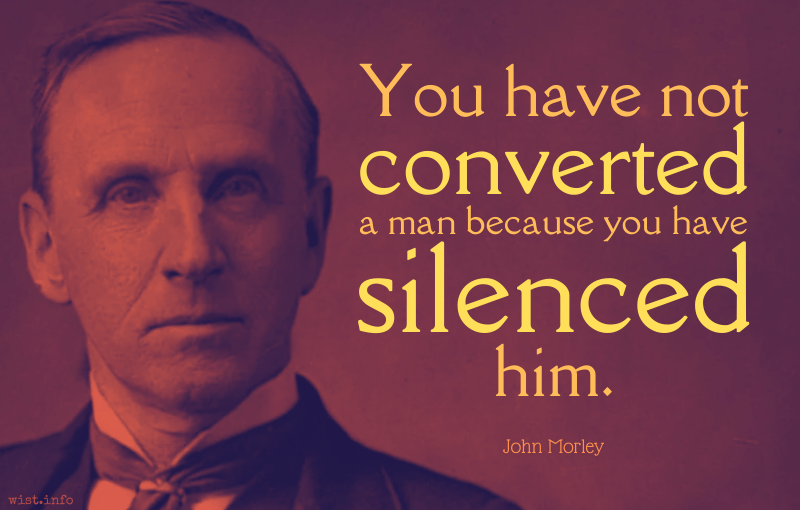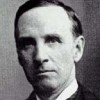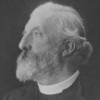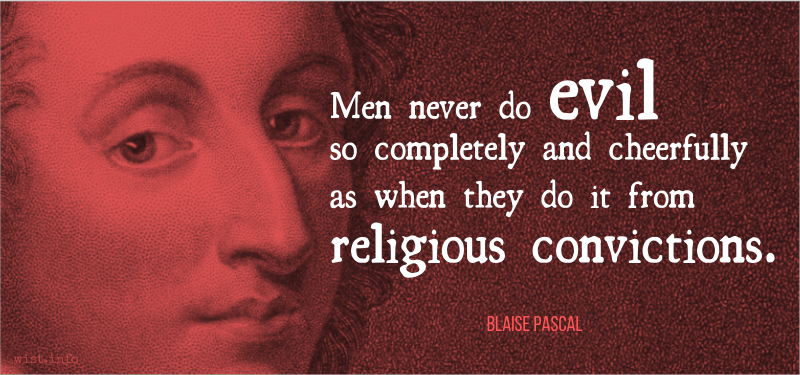Quotations about:
conscience
Note not all quotations have been tagged, so Search may find additional quotes on this topic.
There is such a thing as internal collapse. Despairing certitude does not infiltrate a human being without displacing and disrupting certain profound elements that sometimes constitute the man himself. Grief, when it reaches this pitch, routs all strength of conscience. These are deadly crises. Few of us emerge from them true to ourselves and steadfast in our duty. When the limit of endurance is exceeded, the most unshakeable virtue is undermined.
[Il y a des effondrements intérieurs. La pénétration d’une certitude désespérante dans l’homme ne se fait point sans écarter et rompre de certains éléments profonds qui sont quelquefois l’homme lui-même. La douleur, quand elle arrive à ce degré, est un sauve-qui-peut de toutes les forces de la conscience. Ce sont là des crises fatales. Peu d’entre nous en sortent semblables à eux-mêmes et fermes dans le devoir. Quand la limite de la souffrance est débordée, la vertu la plus imperturbable se déconcerte.]
Victor Hugo (1802-1885) French writer
Les Misérables, Part 4 “Saint Denis,” Book 15 “The Rue de L’Homme Armé,” ch. 1 (4.15.1) (1862) [tr. Donougher (2013)]
(Source)
Valjean "internally collapsing" at the realization that Cosette plans to leave him for Marius, and deciding to track Marius down to confront or even kill him.
(Source (French)). Alternate translations:
There are interior subsoilings. The penetration of a torturing certainty into man does not occur without breaking up and pulverising certain deep elements which are sometimes the man himself. Grief, when it reaches this stage, is a panic of all the forces of the soul. These are fatal crises. Few among us come through them without change, and firm in duty. When the limit of suffering is overpassed, the most imperturbable virtue is disconcerted.
[tr. Wilbour (1862)]
There are such things as internal landslides; the penetration of a desperate certainty into a man is not effected without removing and breaking certain profound elements which are at times the man himself. Grief, when it attains that pitch, is a frantic flight of all the forces of the conscience, and such crises are fatal Few among us emerge from them equal to ourselves and firm in our duty, for when the limit of suffering is exceeded the most imperturbable virtue is disconcerted.
[tr. Wraxall (1862)]
There is such a thing as the sudden giving way of the inward subsoil. A despairing certainty does not make its way into a man without thrusting aside and breaking certain profound elements which, in some cases, are the very man himself. Grief, when it attains this shape, is a headlong flight of all the forces of the conscience. These are fatal crises. Few among us emerge from them still like ourselves and firm in duty. When the limit of endurance is overstepped, the most imperturbable virtue is disconcerted.
[tr. Hapgood (1887)]
There is such a thing as spiritual collapse. The thrust of a desperate certainty into a man cannot occur without the disruption of certain profound elements which are sometimes the man himself. Anguish, when it has reached this stage, becomes a panic-flight of all the powers of conscience. There are mortal crises from which few of us emerge in our right mind, with our sense of duty still intact. When the limit of suffering is overpassed the most impregnable virtue is plunged in disarray.
[tr. Denny (1976)]
There are interior collapses. The penetration of a torturing certainty within man does not occur without breaking up and pulverizing certain deep elements that are sometimes the man himself. Grief, when it reaches this level, is a panic of all the forces of consciousness. These are fatal crises. Few among us come through them unchanged and firm in duty. When the limit of suffering is topped, the most imperturbable virtue is disconcerted.
[tr. Wilbour/Fahnestock/MacAfee (1987)]
And, behold, the Lord passed by, and a great and strong wind rent the mountains, and brake in pieces the rocks before the Lord; but the Lord was not in the wind: and after the wind an earthquake; but the Lord was not in the earthquake: And after the earthquake a fire; but the Lord was not in the fire: and after the fire a still small voice.
The Bible (The Old Testament) (14th - 2nd C BC) Judeo-Christian sacred scripture [Tanakh, Hebrew Bible], incl. the Apocrypha (Deuterocanonicals)
1 Kings 19:11-12 [KJV (1611)]
(Source)
Alternate translations:
Then Yahweh himself went by. There came a mighty wind, so strong it tore the mountains and shattered the rocks before Yahweh. But Yahweh was not in the wind. After the wind came an earthquake. But Yahweh was not in the earthquake. After the earthquake came a fire. But Yahweh was not in the fire. And after the fire there came the sound of a gentle breeze.
[Jerusalem (1966)]
Then the Lord passed by and sent a furious wind that split the hills and shattered the rocks -- but the Lord was not in the wind. The wind stopped blowing, and then there was an earthquake -- but the Lord was not in the earthquake. After the earthquake there was a fire -- but the Lord was not in the fire. And after the fire there was the soft whisper of a voice.
[GNT (1976)]
Now there was a great wind, so strong that it was splitting mountains and breaking rocks in pieces before the Lord, but the Lord was not in the wind, and after the wind an earthquake, but the Lord was not in the earthquake, and after the earthquake a fire, but the Lord was not in the fire, and after the fire a sound of sheer silence.
[NRSV (1989)]
Then a great and powerful wind tore the mountains apart and shattered the rocks before the Lord, but the Lord was not in the wind. After the wind there was an earthquake, but the Lord was not in the earthquake. After the earthquake came a fire, but the Lord was not in the fire. And after the fire came a gentle whisper.
[NIV (2011)]
Nothing makes one so vain as being told that one is a sinner. Conscience makes egotists of us all.
Oscar Wilde (1854-1900) Irish poet, wit, dramatist
The Picture of Dorian Gray, ch. 8 [Lord Henry] (1891)
(Source)
The faith that stands on authority is not faith. The reliance on authority measures the decline of religion, the withdrawal of the soul.
Ralph Waldo Emerson (1803-1882) American essayist, lecturer, poet
“The Over-Soul,” Essays: First Series, ch. 9 (1841)
(Source)
It is good, too, that we sometimes suffer opposition, and that men think ill of us and misjudge us, even when we do and mean well. Such things are an aid to humility, and preserve us from pride and vainglory. For we more readily turn to God as our inward witness, when men despise us and think no good of us.
[Bonum est quod patiamur quandoque contradictiones, et male et imperfecte de nobis sentiatur, etiamsi bene agimus, et intendimus. Ista sæpe juvant ad humilitatem, et a vana gloria nos defendunt. Tunc enim melius interiorem testem Deum quærimus, quando foris vilipendimur ab hominibus, et non bene de nobis creditur.]
Thomas à Kempis (c. 1380-1471) German-Dutch priest, author
The Imitation of Christ [De Imitatione Christi], Book 1, ch. 12, v. 1 (1.12.1) (c. 1418-27) [tr. Sherley-Price (1952)]
(Source)
(Source (Latin)). Alternate translations:
It is good also that we suffer sometime contradiction, and that we be holden of others as evil, and wretched, and sinful, though we do well and intend well: for such things help us to meekness and mightily defend us from vain-glory and pride. We take God the better to be our judge and witness, when we be outwardly despised in the world, and the world judgeth not well of us.
[tr. Whitford/Raynal (1530/1871)]
It also is good that we sometimes suffer contradiction, and that we be thought of by others as evil and wretched and sinful, though we do well and intend well; such things help us to humility, and mightily defend us from vainglory and pride. We take God better to be our judge and witness when we are outwardly despised in the world and the world does not judge well of us.
[tr. Whitford/Gardiner (1530/1955)]
It is good for us sometimes to be crossed and contradicted, yea to be ill spoken of, and ill thought of, although we both doe and mean well. These wonderfully increase in us the vertue of humility, and strongly beat downe in us the vice of vain-glory. For then we more earnestly call God to witnesse in us and for us, when men abroad dis-esteeme us and give no credit unto us.
[tr. Page (1639), 1.3.3-5]
The Injuries and contumelious Usage, the Calumnies and Censures of them who speak and think ill of us, bring their Profit with them too; even when most wrongful, most undeserved. For these oftentimes are an occasion of rectifying our Measures, as bringing us to a juster and more modest Opinion of our selves: They cure our Ambition and Vain-glory, and convince us how vain a thing it is, to thrill after Reputation and the Praise of Men, when even Innocence and Goodness cannot protect us from Slander and Reproaches. They teach us to set a due Value upon the Testimony of our own Consciences, and the righteous Approbation of God, the Searcher of Hearts; when that which he will not fail to commend and reward, cannot escape the Contempt and Condemnation of the World, nor prevail for so much as fair Quarter, from our mistaken and injurious Brethren.
[tr. Stanhope (1696; 1706 ed.)]
It is good for him also to meet with contradiction and reproach; and to be evil thought of, and evil spoken of, even when his intentions are upright, and his actions blameless; for this keeps him humble, and is a powerful antidote to the poison of vain glory: then chiefly it is, that we have recourse to the witness within us, which is God; when we are outwardly despised, and held in no degree of esteem and favor among men.
[tr. Payne (1803)]
It is good that we be sometimes contradicted; and that there be an evil or a lessening conceit had of us; and this, although we do and intend well. These things help often to the attaining of humility, and defend us from vain glory: for then we chiefly seek God for our inward witness, when outwardly we be contemned by men, and when there is no credit given unto us.
[ed. Parker (1841)]
It is good for us also to meet with contradiction and reproach; and to be evil thought of, and evil spoken of; even when our intentions are upright, and our actions blameless; for this keeps us humble, and is a powerful antidote to the poison of vain glory. Then chiefly it is, that we have recourse to the witness within us, which is GOD; when we are outwardly despised, and held in no esteem and favor among men.
[tr. Dibdin (1851)]
It is good that we sometimes suffer contradictions, and that men have an evil or imperfect opinion of us, even when we do and intend well. These things are often helps to humility, and defend us from vain glory. For we then better seek God as our inward witness, when outwardly we are despised by men, and little credit is given to us.
[ed. Bagster (1860)]
It is good that we sometimes endure contradictions, and are hardly and unfairly judged, when we do and mean what is good. For these things help us to be humble, and shield us from vain-glory. For then we seek the more earnestly the witness of God, when men speak evil of us falsely, and give us no credit for good.
[tr. Benham (1874)]
It is good that we be sometimes contradicted, and this, although we do and intend well. These things help often to the attaining of humility, and defend us from vain glory: for then we are more inclined to seek God for our inward witness.
[tr. Anon. (1901)]
It is good for us sometimes to suffer contradiction, to be misjudged by men even though we do well and mean well. These things help us to be humble and shield us from vainglory. When to all outward appearances men give us no credit, when they do not think well of us, then we are more inclined to seek God Who sees our hearts.
[tr. Croft/Bolton (1940)]
It is good for us sometimes to endure contradictions, and to be thought of as bad or imperfect, even when we do and mean well. Such things often help towards meekness, and protect us from idle boasting. For then we look to God, the better inward witness, when we are disparaged from without by men, and no good is credited to us.
[tr. Daplyn (1952)]
It's good for you sometimes to hear men's voices raised against you, and to find that you are making a bad impression, or at least a false impression, on others, even when you are doing your best, and with the best intentions. It often makes for humility; prevents you from having too good an opinion of yourself. It's when we make a bad surface impression, and people are ready to think ill of us, that we learn to fall back upon God's judgements, because he witnesses all our actions from within.
[tr. Knox-Oakley (1959)]
It is a good thing that we are maligned now and again, and are misjudged and disliked even when we mean and do well. This sort of thing is often a great help in achieving humility, and it keeps us from groundless self-satisfaction; for we are more ready to listen for God’s assuring voice within, when those around believe the worst of us and treat us with contempt
[tr. Knott (1962)]
It is good too that we should be contradicted and ill-thought of, even when we act with the best intentions. Experiences like these help us towards humility and guard us against vainglory. When outwardly we are slandered and ill-thought of, then we will yearn more anxiously for God’s inward witness.
[tr. Rooney (1979)]
Sometimes it is good that we put up with people speaking against us, and sometimes it is good that we be thought of as bad and flawed, even when we do good things and have good intentions. Such troubles are often aids to humility, and they protect us from pride. Indeed, we are sometimes better seeking God when people have nothing but bad things to say about us and when they refuse to give us credit for the good things we have done!
[tr. Creasy (1989)]
He who made us would have been a pitiful bungler if he had made the rules of our moral conduct a matter of science. For one man of science, there are thousands who are not. What would have become of them? Man was destined for society. His morality therefore was to be formed to this object. He was endowed with a sense of right and wrong merely relative to this. This sense is as much a part of his nature as the sense of hearing, seeing, feeling; it is the true foundation of morality, and not the truth, &c., as fanciful writers have imagined. The moral sense, or conscience, is as much a part of man as his leg or arm. It is given to all human beings in a stronger or weaker degree, as force of members is given them in a greater or less degree. It may be strengthened by exercise, as may any particular limb of the body. This sense is submitted indeed in some degree to the guidance of reason; but it is a small stock which is required for this: even a less one than what we call Common sense.
Thomas Jefferson (1743-1826) American political philosopher, polymath, statesman, US President (1801-09)
Letter to Peter Carr (10 Aug 1787)
(Source)
We who hold public office are enjoined by our Constitution against enacting laws to tell the people when or where or how to pray.
All our experience and all our knowledge proves that injunction is good. for, if government could ordain the people’s prayers, government could also ordain its own worship — and that must never be.
The separation of church and state has served our freedom well because men of state have not separated themselves from church and faith and prayer.Lyndon B. Johnson (1908-1973) American politician, educator, US President (1963-69)
Speech, Presidential Prayer Breakfast (1964-02-05)
(Source)
This was at the 12th Annual Presidential Prayer Breakfast.
In the Proceedings of the Illinois State AFL-CIO Convention (1968), there is (a) a reference to a note that the state president of the AFL/CIO, Reuben G. Soderstrom, attending the 16th such Prayer Breakfast, and then (b) a passage on the next page "U. S. President Lyndon B. Johnson's statement to a tremendous audience contained the following comment:"
Our Constitution separates church and state. We know that separation is a source of our system's strength, but the conscience of our nation does not call for separation between men of state and faith in the Supreme Being.
Johnson does not appear to have included this text in his speech at the 16th Presidential Prayer Breakfast, nor does he appear to have gone to the 1968 Illinois AFL/CIO convention. Is this an odd paraphrase of the comments from four years earlier? Did Johnson speak the above in another venue that was also quoted in the Illinois AFL/CIO Convention proceedings? Is this paraphrase actually what he said in 1964, regardless of the written record of his comments?
While that shorter quote, or further paraphrases of it, are easy to find in quotation collections online, I can find no citation associated with it.
To accept passively an unjust system is to cooperate with that system; thereby the oppressed become as evil as the oppressor. Non-cooperation with evil is as much a moral obligation as is cooperation with good. The oppressed must never allow the conscience of the oppressor to slumber. Religion reminds every man that he is his brother’s keeper. To accept injustice or segregation passively is to say to the oppressor that his actions are morally right. It is a way of allowing his conscience to fall asleep. At this moment the oppressed fails to be his brother’s keeper. So acquiescence — while often the easier way — is not the moral way. It is the way of the coward.
Martin Luther King, Jr. (1929-1968) American clergyman, civil rights leader, social activist, preacher
Stride Toward Freedom, ch. 11 “Where Do We Go from Here?” (1958)
(Source)
A doctrine insulates the devout not only against the realities around them but also against their own selves. The fanatical believer is not conscious of his envy, malice, pettiness and dishonesty. There is a wall of words between his consciousness and his real self.
Eric Hoffer (1902-1983) American writer, philosopher, longshoreman
The Passionate State of Mind, Aphorism 68 (1955)
(Source)
“How shall a man judge what to do in such times?”
“As he ever has judged,” said Aragorn. “Good and ill have not changed since yesteryear; nor are they one thing among Elves and Dwarves, and another among Men. It is a man’s part to discern them, as much in the Golden Wood as in his own house.”
J.R.R. Tolkien (1892-1973) English writer, fabulist, philologist, academic [John Ronald Reuel Tolkien]
The Lord of the Rings, Vol. 2: The Two Towers, Book 3, ch. 2 “The Riders of Rohan” [Eomer and Aragorn] (1954)
(Source)
On some positions, Cowardice asks the question, “Is it safe?” Expediency asks the question, “Is it is politic?” Vanity asks the question, “Is it is popular?” But Conscience asks the question, “Is it right?” There comes a time when one must take a position that is neither safe, nor politic, nor popular, but he must do it because Conscience tells him it is right.
Martin Luther King, Jr. (1929-1968) American clergyman, civil rights leader, social activist, preacher
Speech, Santa Rita, Calif., (14 Jan 1968)
Recording (at 10:22). King reused speech elements frequently. The same passage can be found in "Remaining Awake Through a Great Revolution", sermon at the National Cathedral, Washington, DC (31 Mar 1968).
Friendship may well deserve the sacrifice of pleasure, though not of conscience.
Samuel Johnson (1709-1784) English writer, lexicographer, critic
The Rambler, #64 (27 Oct 1750)
(Source)
Conscience can’t be compelled.
Thomas Fuller (1654-1734) English physician, preacher, aphorist, writer
Gnomologia: Adages and Proverbs, #1144 (1732)
(Source)
Finally, stick to the advice your own heart gives you, no one can be truer to you than that; since a man’s soul often forewarns him better than seven watchmen perched on a watchtower.
The Bible (The Old Testament) (14th - 2nd C BC) Judeo-Christian sacred scripture [Tanakh, Hebrew Bible], incl. the Apocrypha (Deuterocanonicals)
Sirach (Ecclesiasticus) 37:13-14 [JB (1966)]
(Source)
Alternate translations:
And let the counsel of thine own heart stand: for there is no man more faithful unto thee than it. For a man's mind is sometime wont to tell him more than seven watchmen, that sit above in an high tower.
[KJV (1611)]
And establish within thyself a heart of good counsel: for there is no other thing of more worth to thee than it. The soul of a holy man discovereth sometimes true things, more than seven watchmen that sit in a high piece to watch.
[DRA (1899); 37:17-18]
And trust your own judgment; no one's advice is more reliable. Sometimes your own intuition can tell you more than seven watchmen on a high tower.
[GNT (1976)]
And heed the counsel of your own heart, for no one is more faithful to you than it is. For our own mind sometimes keeps us better informed than seven sentinels sitting high on a watchtower.
[NRSV (1989 ed.)]
Courage is of two kinds: courage in the face of personal danger, and courage to accept responsibility, either before the tribunal of some outside power or before the court of one’s own conscience.
[Der Muth ist doppelter Art: einmal Muth gegen die persönliche Gefahr, und dann Muth gegen die Verantwortlichkeit, sei es vor drm Richterstuhl irgend einer äussern Macht, oder der innern, nämlich des Gewissens.]
Karl von Clausewitz (1780-1831) Prussian soldier, historian, military theorist
On War [Vom Kriege], Book 1, ch. 3 “On Military Genius [Der Kriegerische Genius],” (1.3) (1832) [tr. Howard & Paret (1976)]
(Source)
(Source (German)). Alternate translations:
Courage is of two kinds: first, physical courage, or courage in the presence of danger to the person; and next, moral courage, or courage before responsibility, whether it be before the judgment seat of external authority, or of the inner power, the conscience.
[tr. Graham (1873)]
Courage is of two kinds: first, courage in presence of danger to the person, and next, courage in the presence of responsibility, whether before the judgment seat of an external authority, or before that of the internal authority which is conscience.
[tr. Jolles (1943)]
Whenever the devil harasses you, seek the company of men or drink more, or joke and talk nonsense, or do some other merry thing. Sometimes we must drink more, sport, recreate ourselves, aye, and even sin a little to spite the devil, so that we leave him no place for troubling our consciences with trifles. We are conquered if we try too conscientiously not to sin at all. So when the devil says to you: “Do not drink,” answer him: “I will drink, and right freely, just because you tell me not to.” One must always do what Satan forbids.
Martin Luther (1483-1546) German religious reformer
Letter to Jerome Weller (Jul 1530)
(Source)
Alt. trans.: "We are soon defeated if we try too hard not to sin. So when the devil says ‘Do not drink’ answer him: ‘I shall drink, and right freely, just because you tell me not to!’"
RICHARD: Conscience is but a word that cowards use,
Devised at first to keep the strong in awe:
Our strong arms be our conscience, swords our law.William Shakespeare (1564-1616) English dramatist and poet
Richard III, Act 5, sc. 3, l. 327ff (5.3.327-329) (1592)
(Source)
CONSCIENCE: the inner voice which warns us that someone may be looking.
Conscience is thoroughly well-bred and soon leaves off talking to those who do not wish to hear it.
Samuel Butler (1835-1902) English novelist, satirist, scholar
Further Extracts from the Note-Books of Samuel Butler, ch. 4 (1934)
(Source)
Vanity asks the question — is it popular? Conscience asks the question — is it right?
Martin Luther King, Jr. (1929-1968) American clergyman, civil rights leader, social activist, preacher
Sermon, Passion Sunday, National Cathedral, Washington, DC (31 Mar 1968)
See also this.
The shield against the stingings of conscience is the universal practice of our contemporaries. Again, it is very easy to be as wise and good as your companions.
Ralph Waldo Emerson (1803-1882) American essayist, lecturer, poet
“Uses of Great Men,” Representative Men Lecture 1, Boston (1845-12-11)
(Source)
The Stoics could only advise the wise man to hold aloof from politics, keeping the unwritten law in his heart. But when Christ said: “Render unto Caesar the things that are Caesar’s, and unto God the things that are God’s,” those words, spoken on His last visit to the Temple, three days before His death, gave to the civil power, under the protection of conscience, a sacredness it had never enjoyed, and bounds it had never acknowledged; and they were the repudiation of absolutism and the inauguration of freedom.
Indeed, justice is conscience, not a personal conscience but the conscience of the whole of humanity. Those who clearly recognize the voice of their own conscience usually recognize also the voice of justice.
Formerly there were those who said: You believe things that are incomprehensible, inconsistent, impossible because we have commanded you to believe them; go then and do what is unjust because we command it. Such people show admirable reasoning. Truly, whoever is able to make you absurd is able to make you unjust. If the God-given understanding of your mind does not resist a demand to believe what is impossible, then you will not resist a demand to do wrong to that God-given sense of justice in your heart. As soon as one faculty of your soul has been dominated, other faculties will follow as well. And from this derives all those crimes of religion which have overrun the world.
[Il y a eu des gens qui ont dit autrefois: Vous croyez des choses incompréhensibles, contradictoires, impossibles, parce que nous vous l’avons ordonné; faites donc des choses injustes parce que nous vous l’ordonnons. Ces gens-là raisonnaient à merveille. Certainement qui est en droit de vous rendre absurde est en droit de vous rendre injuste. Si vous n’opposez point aux ordres de croire l’impossible l’intelligence que Dieu a mise dans votre esprit, vous ne devez point opposer aux ordres de malfaire la justice que Dieu a mise dans votre coeur. Une faculté de votre âme étant une fois tyrannisée, toutes les autres facultés doivent l’être également. Et c’est là ce qui a produit tous les crimes religieux dont la terre a été inondée.]
Voltaire (1694-1778) French writer [pseud. of Francois-Marie Arouet]
Questions sur les miracles (1765)
(Source)
Commonly translated: "Those who can make you believe absurdities can make you commit atrocities."
The church must be reminded that it is not the master or the servant of the state, but rather the conscience of the state. It must be the guide and the critic of the state, and never its tool. If the church does not recapture its prophetic zeal, it will become an irrelevant social club without moral or spiritual authority. If the church does not participate actively in the struggle for peace and for economic and racial justice, it will forfeit the loyalty of millions and cause men everywhere to say that it has atrophied its will.
Martin Luther King, Jr. (1929-1968) American clergyman, civil rights leader, social activist, preacher
Strength to Love, ch. 6 “A Knock at Midnight,” sec. 3 (1963)
(Source)
Whatever issue may come before me as President — on birth control, divorce, censorship, gambling or any other subject — I will make my decision in accordance with these views, in accordance with what my conscience tells me to be the national interest, and without regard to outside religious pressures or dictates. And no power or threat of punishment could cause me to decide otherwise. But if the time should ever come — and I do not concede any conflict to be even remotely possible — when my office would require me to either violate my conscience or violate the national interest, then I would resign the office; and I hope any conscientious public servant would do the same.
John F. Kennedy (1917-1963) US President (1961-63)
Speech, Greater Houston Ministerial Association (12 Sep 1960)
(Source)
Those of us who shout the loudest about Americanism in making character assassinations are all too frequently those who, by our own words and acts, ignore some of the basic principles of Americanism:
The right to criticize.
The right to hold unpopular beliefs.
The right to protest.
The right of independent thought.The exercise of these rights should not cost one single American citizen his reputation or his right to a livelihood, nor should he be in danger of losing his reputation or livelihood merely because he happens to know someone who holds unpopular beliefs. Who of us doesn’t? Otherwise none of us could call our souls our own. Otherwise thought control would have set in.
Margaret Chase Smith (1897-1965) American politician (US Senator, Maine)
“Declaration of Conscience” (1950-06-01)
(Source)
Speech given in the US Senate.
That religion, or the duty which we owe to our Creator, and the manner of discharging it, can be directed only by reason and conviction, not by force or violence; and therefore all men are equally entitled to the free exercise of religion, according to the dictates of conscience; and that it is the mutual duty of all to practice Christian forbearance, love, and charity towards each other.
FIRST STRANGER: Men must learn now with pity to dispense,
For policy sits above conscience.William Shakespeare (1564-1616) English dramatist and poet
Timon of Athens, Act 3, sc. 2, l. 93ff (3.2.93-94) (1606) [with Thomas Middleton]
(Source)
Certainly, Gentlemen, it ought to be the happiness and glory of a representative to live in the strictest union, the closest correspondence, and the most unreserved communication with his constituents. Their wishes ought to have great weight with him; their opinions high respect; their business unremitted attention. It is his duty to sacrifice his repose, his pleasure, his satisfactions, to theirs, — and above all, ever, and in all cases, to prefer their interest to his own.
But his unbiased opinion, his mature judgment, his enlightened conscience, he ought not to sacrifice to you, to any man, or to any set of men living. These he does not derive from your pleasure, — no, nor from the law and the Constitution. They are a trust from Providence, for the abuse of which he is deeply answerable. Your representative owes you, not his industry only, but his judgment; and he betrays, instead of serving you, if he sacrifices it to your opinion.
The substitution of force for persuasion, among its other disadvantages, has this further drawback, from our present point of view, that it lessens the conscience of a society and breeds hypocrisy. You have not converted a man, because you have silenced him.
John Morley (1838-1923) English statesman, journalist, writer [John, Viscount Morley]
On Compromise, ch. 5 “Realization of Opinion” (1874)
(Source)
I am not willing, now or in the future, to bring bad trouble to people who, in my past association with them, were completely innocent of any talk or any action that was disloyal or subversive. I do not like subversion or disloyalty in any form and if I had ever seen any I would have considered it my duty to have reported it to the proper authorities. But to hurt innocent people whom I knew many years ago in order to save myself is, to me, inhuman and indecent and dishonorable. I cannot and will not cut my conscience to fit this year’s fashions, even though I long ago came to the conclusion that I was not a political person and could have no comfortable place in any political group.
Lillian Hellman (1905-1984) American playwright, screenwriter
Letter to Rep. John S. Wood, House Committee on Un-American Activities (19 May 1952)
(Source)
National Archives copy. Reprinted in The Nation (31 May 1952).
In the letter Hellman offers to come before the committee and talk of her own life and beliefs, but not if she could then be compelled to "name names" of others. As a result of the letter and her invoking the Fifth Amendment at the HUAC hearings, Hellman was put on the Hollywood Blacklist for the rest of the decade.
“They’re certainly entitled to think that, and they’re entitled to full respect for their opinions,” said Atticus, “but before I can live with other folks I’ve got to live with myself. The one thing that doesn’t abide by majority rule is a person’s conscience.”
Harper Lee (1926-2016) American writer [Nellie Harper Lee]
To Kill a Mockingbird, ch. 11 (1960)
(Source)
Christians have burnt each other, quite persuaded
That all the Apostles would have done as they did.
And I know of the Future Judgment,
How dreadful soe’er it be,
That to sit alone with my Conscience
Will be Judgment enough for me.Charles William Stubbs (1845-1912) British cleric (Bishop of Truro)
“The Judgment of Conscience,” st. 13, Bryhtnoth’s Prayer and Other Poems (1899)
(Source)
Men never do evil so completely and cheerfully as when they do it from religious convictions.
[Jamais on ne fait le mal si pleinement et si gaiement, que quand on le fait par un faux principe de conscience.]
Blaise Pascal (1623-1662) French scientist and philosopher
Pensées, ch. 14, Appendix: Polemical Fragments #895 (1669) [tr. Trotter (1910)]
(Source)
Also labeled as Part 2, Article 17, # 53. Sometimes also shown in slightly shorter French as "Jamais on ne fait le mal si pleinement et si gaiement que quand on le fait par conscience."
(Source (French)). Alternate translations:
- "We never do evil so fully and cheerfully as when we do it out of conscience." [#813 (#895), tr. Krailsheimer]
- "We never do evil so completely and cheerfully as when we do it out of conscience." [Miscellaneous Thoughts 7: Sellier #658/Lafuma #813, tr. Ariew]
- "Men never do evil so completely and cheerfully as when they do it conscientiously."
The proper use of embarrassment is as a conscience of manners. As your conscience might trouble you if you do anything immoral, your sense of embarrassment should be activated if you do anything unmannerly. As conscience should come from within, so should embarrassment. Hot tingles and flushes are quite proper when they arise from your own sense of having violated your own standards, inadvertently or advertently, but Miss Manners hereby absolves everyone from feeling any embarrassment deliberately imposed by others.
Judith Martin (b. 1938) American author, journalist, etiquette expert [a.k.a. Miss Manners]
Miss Manners’ Guide to Excruciatingly Correct Behavior, Introduction (1983)
(Source)






